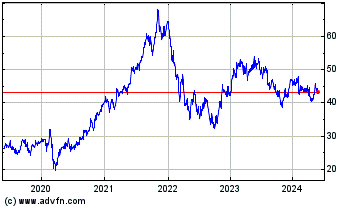Interpump (BIT:IP)
Historical Stock Chart
From Jan 2020 to Jan 2025


